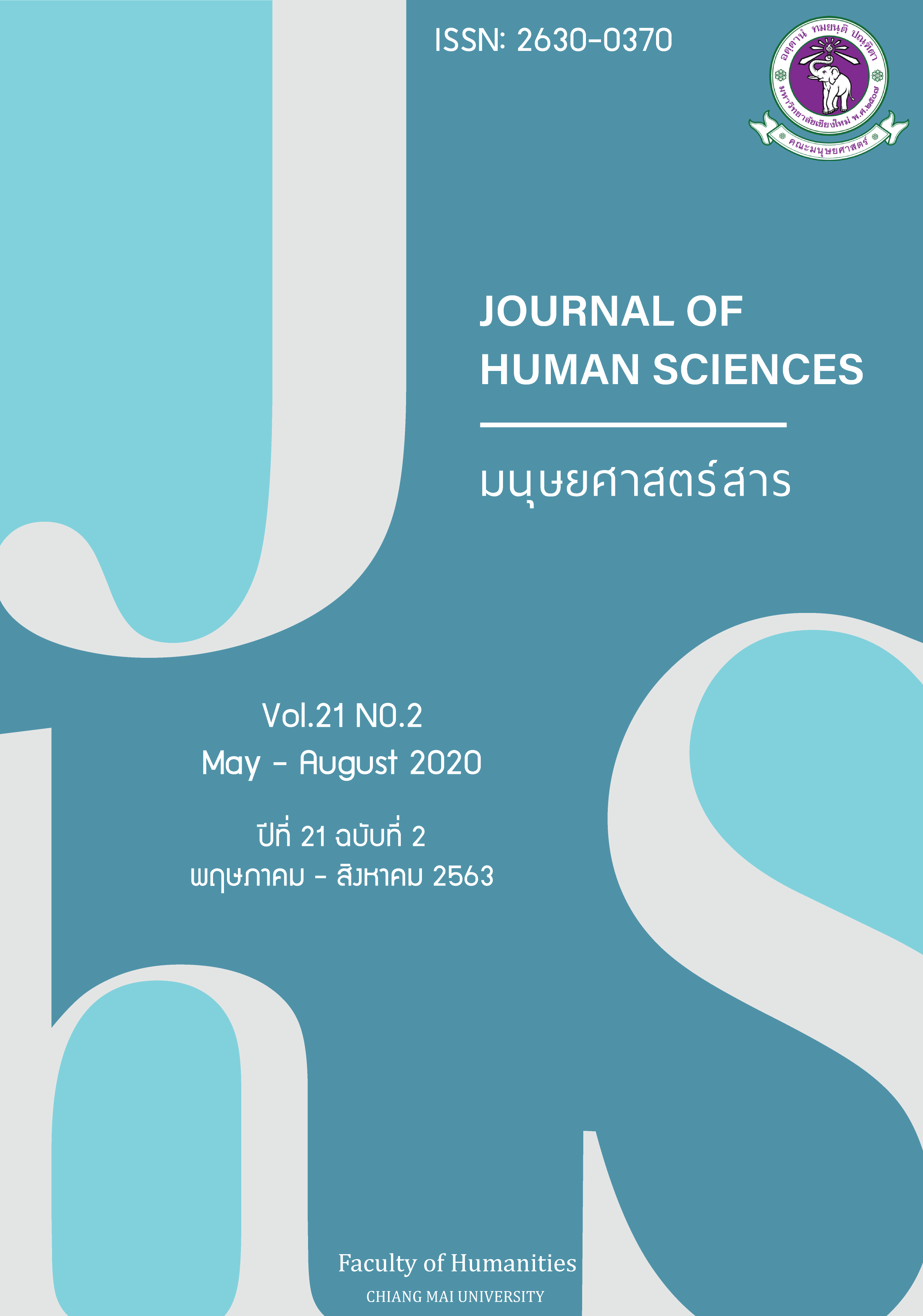ว่าด้วยเวลาอนาคต: วิพากษ์ประวัติศาสตร์ที่เป็นเส้นตรงและข้อถกเถียงระหว่าง Kojève กับ Althusser
Main Article Content
บทคัดย่อ
บทความวิจัยนี้มีคำถามว่า “อนาคต” มีความสำคัญต่อมนุษย์และการเปลี่ยนแปลงของสังคมมนุษย์อย่างไร และมโนทัศน์ว่าด้วย “เวลา” แบบใดที่จะทำให้มนุษย์สามารถสร้างอนาคตและประวัติศาสตร์ของตนเองอย่างมีอิสระได้ พบว่า แนวคิดว่าด้วยเวลาของหลุยส์ อัลธุสแซร์ที่ให้ความสำคัญกับจุดบรรจบของเวลาและการมองอนาคตแบบปลายเปิดมีส่วนให้เราสามารถหาทางออกจากการมองเวลาแบบเฮเกเลียนซึ่งปรากฏในงานของอเลกซานเดอร์ โคแจฟนั้นเชื่อว่าอนาคตเป็นสิ่งที่มีจุดจบและถูกกำหนดเอาไว้ล่วงหน้าแล้วอย่างตายตัว ส่งผลให้มนุษย์ปราศจากเสรีภาพในการเป็นผู้กระทำการทางประวัติศาสตร์ แต่เวลาแบบปลายเปิดของอัลธุสแซร์ต่อต้านการมองเวลาแบบเป็นเส้นตรง โดยให้ความสำคัญกับหลุมของเวลาที่มีความเฉพาะเจาะจงในตัวเอง โดยที่ภายในหลุมของเวลาหนึ่งๆ จะเปิดให้ประวัติศาสตร์สามารถพลิกผันเปลี่ยนแปลงได้ ในแง่นี้ การเปลี่ยนสังคมก็ย่อมต้องอาศัยมโนทัศน์ว่าด้วยเวลาอีกประเภทหนึ่งที่จะอนุญาตให้การเปลี่ยนแปลงสามารถเกิดขึ้นได้ ซึ่งการทำความเข้าใจการเปลี่ยนแปลงสังคมดังกล่าวนี้ก็คือหัวใจของการศึกษาวิชาสังคมวิทยา
Article Details
เอกสารอ้างอิง
Althusser, L. (1992). The Future Lasts Forever: A Memoir. NY: The New Press.
Althusser, L., & Balibar, E. (1970). Reading Capital. NY: Verso.
Berardi, F. B. (2011). After the Future. Oakland, Edinburg: AK Press.
Berardi, F. B. (2017). Futurability: The Age of Impotence and the Horizon of Possibility. NY: Verso.
Han, B. C. (2017). The Scent of Time: A Philosophical Essay on the Art of Lingering. Cambridge: Polity.
Kitirianglarp, K. (2018). Conatus: chiwit læ amnat khuapkhum chiwit nai rabop thunniyom hæng satawat thi yisipet. [Conatus: ชีวิตและอำนาจควบคุมชีวิตในระบบทุนนิยมแห่งศตวรรษที่ 21]. Bangkok: Illuminations Editions
Kitirianglarp, K. (2020). Sangkhomwitthaya prawattisat læ khwamkhit rưang wela nai sinlapa awaong - kat. [สังคมวิทยาประวัติศาสตร์และความคิดเรื่องเวลาในศิลปะอวองต์-การ์ด]. Bangkok: Thailand Science Research and Innovation.
Kojève, A. (1969). Introduction to the Reading of Hegel: Lectures on Phenomenology of Spirit. London: Cornell University Press.
Negri, A. (1996). Notes on the Evolution of Thought of the Later Althusser. In A. Callari &
D. F. Ruccio (Eds.), Postmodern Materialism and the Future of Marxist Theory: Essays in the Althusserian Marxism (pp. 51-68). Hanover and London: Wesleyian University Press.
Negri, A. (2003). Time for Revolution. NY: Continuum.
Osborne, P. (2008). Marx and the philosophy of time. Radical Philosophy, 147. 15-22.
Thompson, E. P. (1967). Time, Work-Discipline and Industrial Capitalism. Past and Present, 38. 56-97.
Thompson, E. P. (1978). The Poverty of Theory: or an Orrery of Errors. London: Merlin Press
Wongyannava, T. (2020). prawattisat niyom: chak Giambattista Vico su Antonio Gramsci [ประวัติศาสตร์นิยม: จาก Giambattista Vico สู่ Antonio Gramsci]. Bangkok: Thammasat University.


